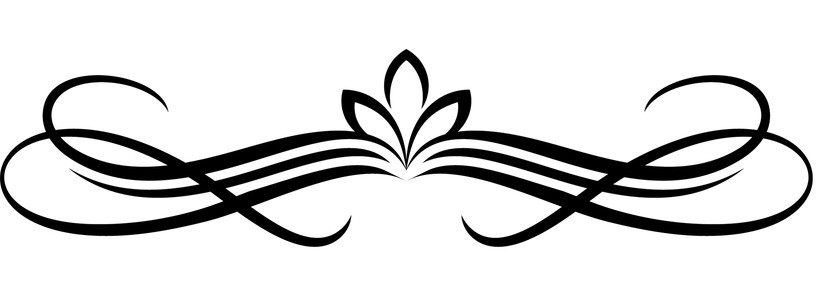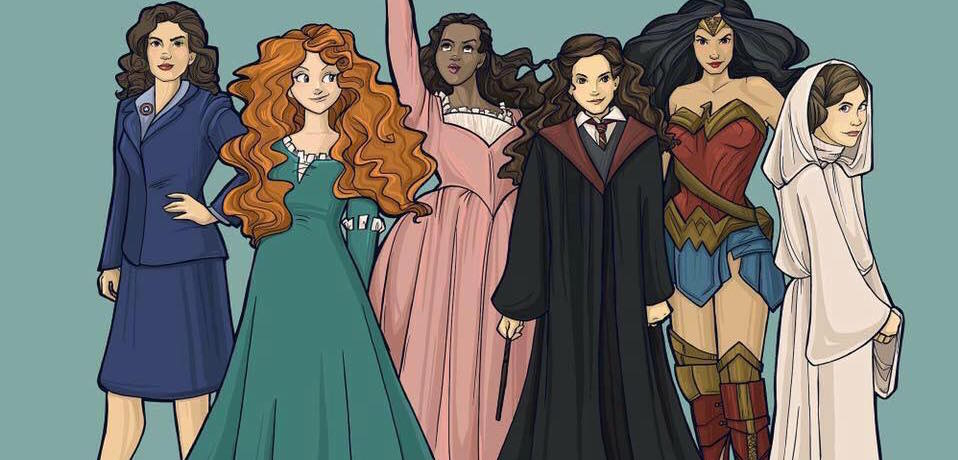Hello and Happy new year everyone! I hope you’ve had a chance to read the previous posts featuring authors of Jewish Historical Fiction. Joining us today, I’m pleased to present D.B. Schaefer. The author was born and raised in the American Midwest, but she headed to more exotic locales after university and has flourished there ever since.

She has worked as a journalist, newspaper editor, and a technical communicator at various stages of her life. Schaefer also wrote many novels in her dreams before completing Me & Georgette, her quirky time-travel homage to famed Regency historical author Georgette Heyer.
This book was an absolute must read for me. The creative narrative brought Regency and Yiddishkeit successfully into a shidduch and married the two worlds beautifully. I couldn’t wait to read the end, not because I was eager to set down the book; but rather, I was dying of curiosity to see how the time-travel issue was dealt with…Jewishly.
Host: Let’s get right to it, shall we? Tell us how this book came about.
Guest: I was first introduced to the Regency romance genre decades ago. I read several Georgette Heyer novels at the time, but it wasn’t what one would call an obsession. Fast forward several years, and I was married and living in Israel. One day while browsing in a used bookshop in downtown Jerusalem, I came across a bin of old books marked a shekel a piece (about 50 cents at the time) and found several Heyers. I purchased them all. They were perfect reading for the time: clean (because I was a nice religious lady by then), fun, and literate. I became an instant Heyer addict, and the search for more Heyer novels was on. I actually found a different used bookstore whose owner traveled to England several times a year to purchase used books. He had a following of Heyer fans and would hide her novels under the counter. “Do you have any books by Georgette Heyer?” I’d ask, and Dani would surreptitiously pull one or two out for me. Soon I also had friends in American searching for Georgette Heyers to complete my collection. One friend sent me a box full of Heyers that included A Civil Contract, which is one of Heyer’s more mature and serious novels.
After I read it, it occurred to me that there were many similarities (aside from Almack’s) between match-making and marriage in Heyer’s novels and in the orthodox Jewish community. My imagination was fired, and I soon came up with the idea of a nice Jewish girl from Boro Park who is “on the shelf” and “past her last prayers,” but whose best friend still hasn’t given up hope of finding her a shidduch. When the friend invites her to the Purim meal to check out a possible match, she falls off a chair, bangs her head and is knocked unconscious, and wakes up in Regency England. Me & Georgette was born.
Host: There seems to be a wide variety of genres these days, what with the advent of fan fiction and indie books. Why do you think Jewish Historical Fiction is an important, stand-alone, subject?
Guest: History is usually written by the side of the victor or the politically correct. Jewish historical fiction gives a real voice to our history, which has been generally ignored, suppressed, or rewritten by non-Jewish historians and Jewish historians with an agenda. Jewish historical fiction is especially important in light of the younger generation, many of whom do not know where we originate and where our wanderings have taken us over the millennia. Due to their lack of education and anything to Jewish to latch on to, they are in danger of losing their Jewish identity. Historical novels provide an easy entry point into researching more about our history.
Host: Well said! To that point, I think it must be mentioned, at least as a brief aside, Georgette Heyer has been deemed an anti-Semite. In her book, The Grand Sophy, she fashioned a Jewish character to resemble every stereotype imaginable. He was a moneylender, “a thin, swarthy individual, with long greasy curls, a semitic nose, and an ingratiating leer.” The man even sported full, long peyot when, in reality, most Jews of the Regency era did not observe this commandment. Heyer published her book after the atrocities of the Holocaust were well known throughout the world. She deliberately exaggerated caricatures to enforce the idea of Jewish “otherness,” in a time when Regency Jews were striving to acclimate and fit in with their Anglican counterparts. I learned of Heyer’s predilections after reading your novel. I must admit, I felt some satisfaction in thinking that positive, well-rounded Jewish characters had made their way into a Heyer fan fiction. It would be equally satisfying to know her thoughts on the subject!
But, back to your comment regarding our history, do you remember your first Jewish fiction that was non-Holocaust related?
Guest: Two novels stand out for me, both taken from my father’s library. I think one was called A Dangerous Madness or A Type of Madness, although I am not sure of the name and I’ve never been able to track it down. Even many of the details of the plot elude me. But it was about a Jewish sailor who traveled to Elizabethan England to track down the man who betrayed his wife to the Inquisition. The second was a stunning, sweeping historical novel by Brenda Lesley Segal, The Tenth Measure, which is set during the Jewish-Roman war in the Second Temple period.
Host: Even though I grew up a “Pan Am brat,” my father’s airline benefits only afforded us trips back and forth from Los Angeles to Buenos Aires. As an anglophile, one day soon, I hope to make it to England and the Jane Austen circuit. Have you had the opportunity to visit any of the locations you have written about?
Guest: I’m a Kansas girl. I’ve never even been to Boro Park! I have been to London, but not to Gloucestershire, where Me & Georgette takes place.
Host: Curiosity begs me to ask: are you a panster or a plotter? Do you outline your story and know how it will end, or do you go with the flow and allow your characters to lead the way?
Guest: With Me & Georgette, I started as a “panster,” although I knew how the story was going to end (and even what the climax, which is one of my favorite scenes, would be). At some point I realized I needed to develop the plot that would get me to that end point. Somewhere along the line that plot took on a life of its own, and it was great fun getting from A to Z.
Host: That’s the best part, isn’t it—when the plot takes on a life of its own? The characters practically tell you what they want to do or say. Do you have anything in the works now? I enjoyed your book very much and hope there are more to come!
Guest: I have a Regency sequel to Me & Georgette I’ve been writing on and off for the past several years. Because I am employed full time in another profession and have a complicated home life, I don’t have much time or head space to devote to this newer novel. The sequel, which takes place at Ravenscourt (the central location of Me & Georgette), isn’t a Jewish novel, although there are still some Jewish elements to it. But I hope eventually to weave the Jewish characters in and out of the series, possibly through more time-travel in either direction.
Host: Sounds intriguing! I look forward to reading it. Is there anything else you’d like to add?
Guest: Thank you for hosting the interview, Mirta. I wrote Me & Georgette during a difficult year when I needed FUN. And writing it was indeed fun. This year, too, was difficult–perhaps the most difficult in my life. Baruch Hashem (thank G-d) I had my job, my health, my family, and a roof over my head. That is more than many people can say. But for personal reasons I don’t want to go into, it was unbelievably difficult. And so I found myself reading mostly escape literature. Once again, I needed fun. Friends I spoke to told me the same thing. They were unable to read anything heavy and reverted to their comfort reads.
Just like there is a real place for Jewish literature, escapist literature also plays an important role in our lives. We don’t always need to be pompous or heavy, philosophical, or political. We authors who write light literature also have something important contribute: a welcome release in a cataclysmic world. In this new secular year, may we all share in the fruits of the efforts to control, heal, and stop this horrible virus. The vaccines are rolling out, but many additional advances have been made in medicine and science as a result of the pandemic. May we all merit many more years of the opportunity to read Jewish historical literature.
I’ll just leave your audience now with a short excerpt to whet their appetite.
Devorah returned slowly to consciousness. She became aware first of smells: the odor of fresh sweat, followed by the more subtle scents of earth and grass and wildflowers and, perhaps, weeds. Next came a feeling of extreme warmth, as if a ray of heat were pounding down, enveloping her. She was so hot, so very, very hot and thirsty. Then came the excruciating throbbing at the back of her head, as if she had been viciously battered by a sledgehammer. She moaned and tried to open her eyes, only to be blinded by a blaze of sunlight. She shut them again and tried to rest, to ignore the brutal pain in her head and the parchedness of her throat.
“Look, Adam, she’s coming to,” said a disembodied voice with a precise British accent.
“She appears to be slightly disoriented, as if she has a concussion. She must have sustained a blow to the head, though how the deuce—?” an older, more arrogant voice answered in the same, elegant Queen’s English. “Brandy is what’s needed. Do you have any on you?”
“No, but Mother, you know, always keeps a flask in the carriage for just such emergencies as may arise. I see the team rounding the bend now. Shall I signal John Coachman to spring ’em?”
“No need. Just go wait for them and explain what has happened. The lady—if I may call her that—appears to have gone off again. I’ll see whether I can rouse her.”
Devorah made a supreme effort to open her eyes and focus on the figure crouched before her. Dark, piercing eyes set in a harsh, unfamiliar face stared back at her. She took in the strange cut of their owner’s black hair, then her gaze traveled wonderingly down to the white cloth tied at the stranger’s neck, the uptilted points of his exaggerated shirt collar and the antiquated cut of his blue jacket. Involuntarily, her gaze traveled still further down, and she saw with some embarrassment that he was wearing tightly fitted buff breeches fastened with buttons.
“Oh!” she exclaimed, startled, as her eyes flew up quickly to meet the stranger’s own.
“Come, that is better now,” he said in a slightly amused voice. A smile flickered at the corners of his mouth.
Devorah struggled to raise herself, and he reached out to help pull her into a sitting position. “Much better,” he said coaxingly. “How is your head?”
Devorah, still trying to assimilate the stranger’s unusual costume, felt the back of her head at the exact spot where the sledgehammer was battering her and realized with some shock that a lump had sprouted there. “Better, I guess,” she said. But where was she? Who was this man? If only she didn’t feel so confused.
A coach and four came rushing into view and, obeying signals from the younger man, slowed to a halt. This latter person, too, was clothed in knee breeches and boots and an antiquated coat, and when he turned toward his companion, Devorah saw that he sported a similar neck cloth and shirt points. Where had she seen that dress style before? It was strange, but—at the same time—familiar. It looked like something out of Regency England, she realized, the thought coming to her out of nowhere.
“Oh, no!” she cried out, falling backward. She knew, then, what had come of reading too many Georgette Heyer novels.






Hi Mirta, We are so proud and impressed by your publications and excellent reviews you have gotten. Also amazing to read your posts and interviews with other writers . It’s great to have been there since the time your first book published!! So happy for you and we congratulate you on your successes.😍😍 Any other books in the near future?:) Love, Sari Sent from my iPhone
>
Thank you, Sari! Your interest and support means a great deal to me. And since you’ve asked: Yes! I’m working on a new book. This one will begin in England, but will take place in the Viceroyalty of Rio de la Plata. I can’t wait to share it and hear your thoughts.
I love reading all the interviews and learning about new authors. Very interesting.
I’m so glad you are enjoying the series, Vivian. Thank you for your continued interest and support!